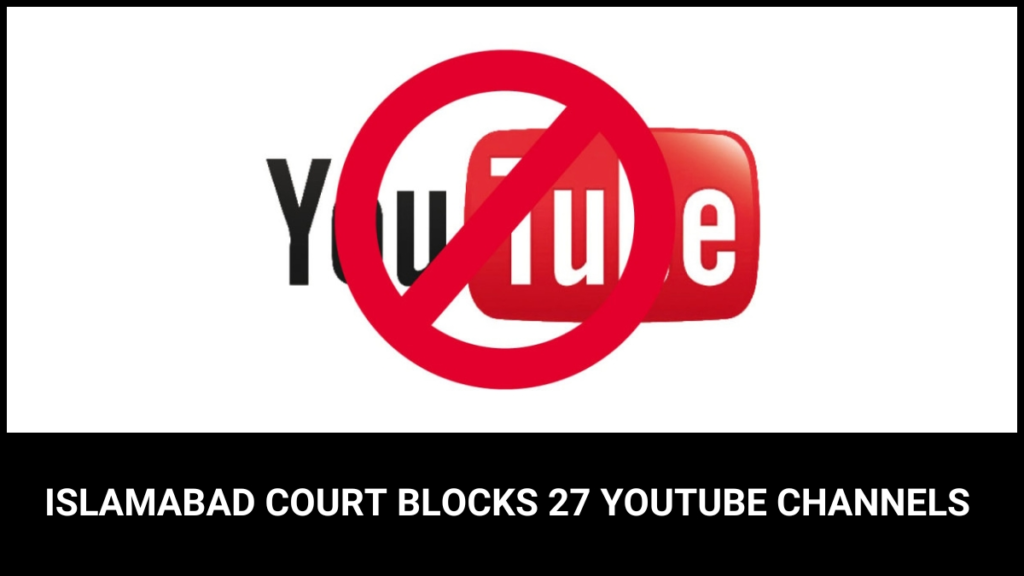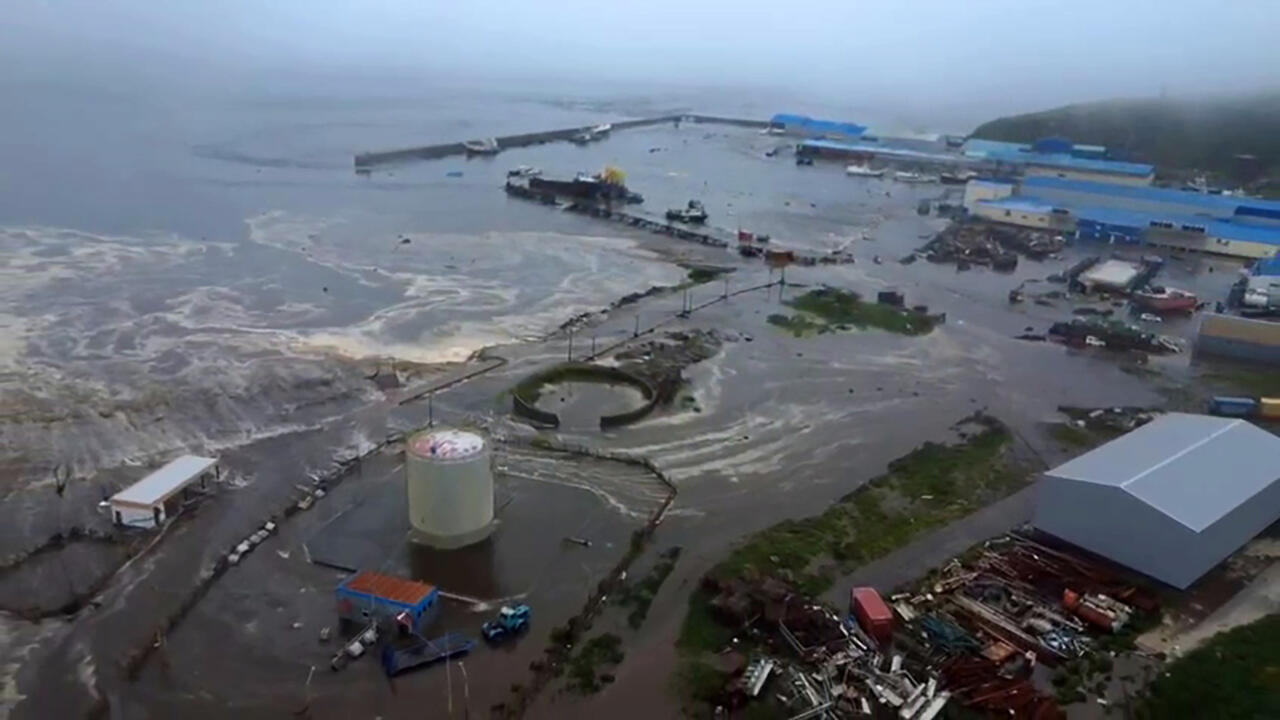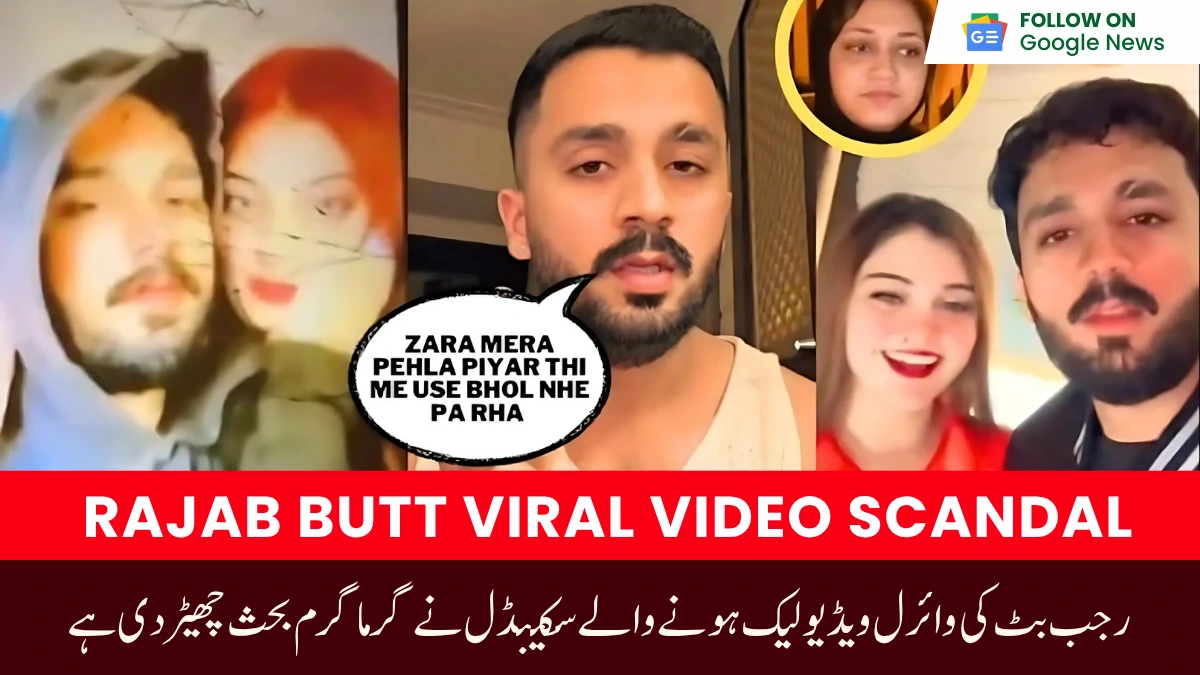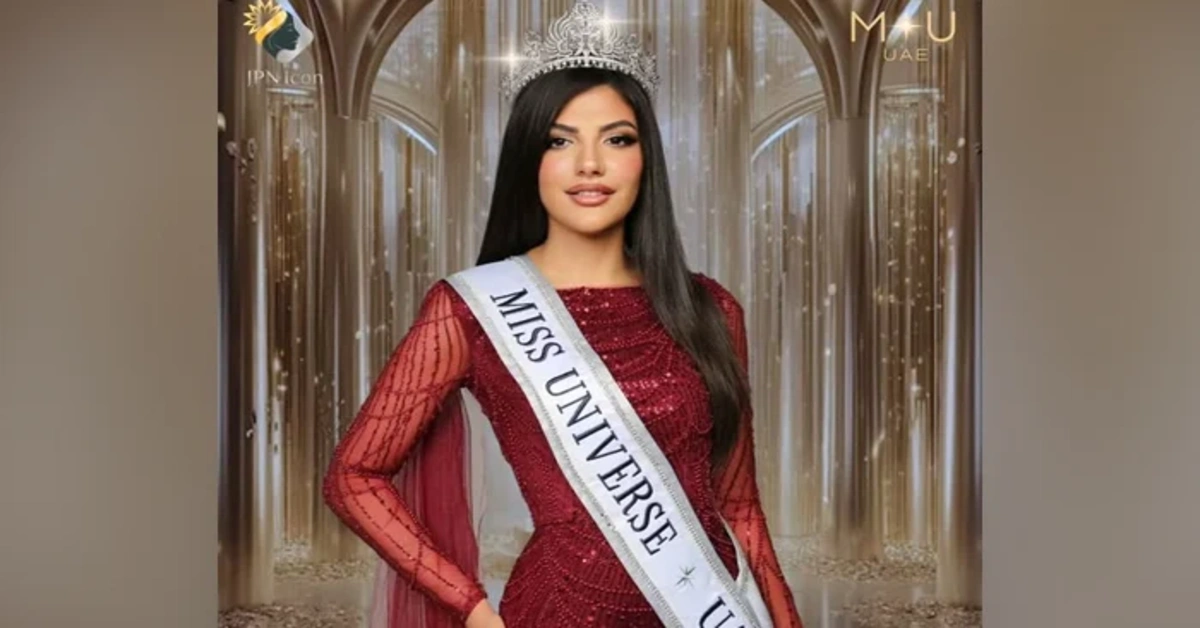
Islamabad Court Blocks 27 YouTube Channels Over Anti-State Content
- Zain Ul Abideen
- Reading Time 7

On July 8, 2025, an Islamabad court ordered the blocking of 27 YouTube channels in Pakistan for sharing content labeled as “anti-state” and spreading false information. This decision, made by Judicial Magistrate Muhammad Abbas Shah, follows a request from the National Cyber Crime Investigation Agency (NCCIA). The ruling aims to stop the spread of misleading and harmful content that could cause public unrest or damage the reputation of state institutions.
Why Were the YouTube Channels Blocked?
The NCCIA, a government agency under the Interior Division, investigates illegal activities on social media. On June 24, 2025, Sub-Inspector Waseem Khan told the court that these 27 YouTube channels were sharing “fake, misleading, and defamatory” content. According to the Prevention of Electronic Crimes Act (PECA) of 2016, this content could create fear, panic, or unrest among the public. It was also accused of harming the dignity of state officials and institutions, including the military and judiciary.
The court reviewed evidence from the NCCIA’s investigation, which began on June 2, 2025. The evidence showed that the channels posted provocative and derogatory material that violated Pakistan’s cybercrime laws. As a result, the court ordered Google, YouTube’s parent company, to block or remove these channels in Pakistan.
ریاست مخالف مواد، عدالت کا ایکشن
— GTV News HD (@GTVNewsPk) July 8, 2025
27 یوٹیوب چینلز بلاک کرنے کا حکم#AntiStateContent #CourtAction #YouTubeChannels #CyberLawPakistan #DigitalRegulation #BreakingNews #GTVNews pic.twitter.com/2HFUoTC51C
🚨 Big Story: The Pakistani government has obtained court orders to block 27 YouTube channels, citing alleged “anti-state” content. In a swift move, the courts widely criticized as compromised, have complied, and YouTube, in line with local legal obligations, has begun… pic.twitter.com/kvaQYj7E6O
— Mirza Shahzad Akbar (@ShazadAkbar) July 8, 2025
Which YouTube Channels Were Targeted?
The blocked YouTube channels include those run by well-known journalists, political commentators, and the Pakistan Tehreek-e-Insaf (PTI) political party. Some of the notable names include:
Channel Name | Owner/Operator |
Matiullah Jan MJtv | Matiullah Jan |
Asad Toor Uncensored | Asad Ali Toor |
Imran Riaz Khan | Imran Riaz Khan |
Orya Maqbool Jan | Orya Maqbool Jan |
Sabir Shakir | Sabir Shakir |
Moeed Pirzada | Moeed Pirzada |
Pakistan Tehreek-e-Insaf | PTI (Political Party) |
Wajahat Saeed Khan | Wajahat Saeed Khan |
Ahmad Noorani | Ahmad Noorani |
Aftab Iqbal | Aftab Iqbal |
Other channels, such as those operated by Habib Akram, Siddique Jaan, Arzoo Kazmi, and Haider Mehdi, were also included in the ban. The full list of 27 channels was cited for spreading content that could provoke the public or create distrust in state institutions.
What Does the Court Order Say?
Judicial Magistrate Abbas Shah’s order, issued on June 24, 2025, stated that the evidence presented by the NCCIA was convincing. The court found that the channels’ actions violated Section 37 of PECA, which deals with unlawful online content. The order directed YouTube to block these channels immediately. YouTube notified affected channel owners, like journalist Asad Ali Toor, about the legal request. The notice warned that if the owners did not remove the content, YouTube might comply with the court order without further notice.
The Role of Pakistan’s Cybercrime Laws
Pakistan’s cybercrime laws, especially the Prevention of Electronic Crimes Act (PECA), have been controversial. In January 2025, PECA was amended to include stricter penalties for sharing “false” information and to allow faster content removal. The law lets anyone report harmful content, and authorities must act within 24 hours. Critics, including journalists and the Human Rights Commission of Pakistan (HRCP), argue that these laws can be used to silence dissent and limit free speech. The blocking of these 27 YouTube channels is one of the first major actions under the amended PECA law.
Reactions to the Ban
The decision has sparked mixed reactions. Some, like journalist Asad Ali Toor, criticized the NCCIA for not giving them a chance to defend themselves before the ban. Toor said his bank accounts were frozen for three months without a hearing, linking it to his reporting on sensitive issues like missing persons and rigged elections. Others, including media bodies and rights activists, worry that the ban could lead to more censorship and harm journalism in Pakistan.
On the other hand, supporters of the ban argue that it protects national security. They say the blocked channels were spreading disinformation that could destabilize the country. Posts on X reflect this divide, with some calling the ruling a step toward accountability, while others see it as an attack on free expression.
What Happens Next?
Affected YouTubers can appeal the decision through YouTube or Pakistan’s judicial system. If they believe their content does not violate PECA, they can challenge the ban in court. However, the ruling shows Pakistan’s government is taking a strong stance against online content it considers harmful. With growing concerns about disinformation and national stability, more actions like this may follow.
This case also raises questions about balancing free speech and national security. While Pakistan aims to protect its institutions, critics warn that broad laws like PECA could be misused to silence opposition. The debate is likely to continue as the country navigates its digital landscape.
The court blocked the channels because they were accused of sharing anti-state content, spreading false information, and violating Pakistan’s cybercrime laws under the Prevention of Electronic Crimes Act (PECA). The content was said to cause public unrest and harm the reputation of state institutions.
The banned channels include those run by journalists like Matiullah Jan, Asad Ali Toor, Ahmad Noorani, and former anchors like Imran Riaz Khan, Orya Maqbool Jan, and Sabir Shakir. The Pakistan Tehreek-e-Insaf (PTI) party’s channel is also on the list.
The NCCIA is a Pakistani government agency under the Interior Division. responsible for investigating cybercrimes, including the spread of illegal or harmful content on social media platforms like YouTube.
Yes, affected YouTubers can appeal through YouTube or challenge the ban in Pakistan’s judicial system. They can argue that their content does not violate cybercrime laws.
The Prevention of Electronic Crimes Act (PECA) allows authorities to remove content deemed false or harmful quickly. Critics say it risks being used to censor journalists and limit free speech, while supporters argue it protects national security.
Send Us A Message

Punjab Schools Reopen: New Schedule for August 2025 After Reduced Summer Vacation

Earthquake Today: 5.4 Magnitude Quake Jolts Pakistan, 8.8 Hits Russia

Tsunami Waves Hit Pacific Coasts After Massive Russia Earthquake

Mardan Board Result 2025: Punjab Private Schools Shine, Government Schools Improve










